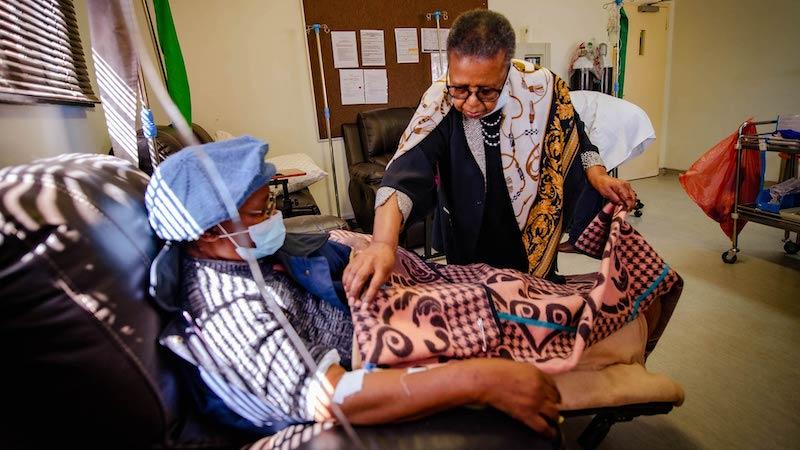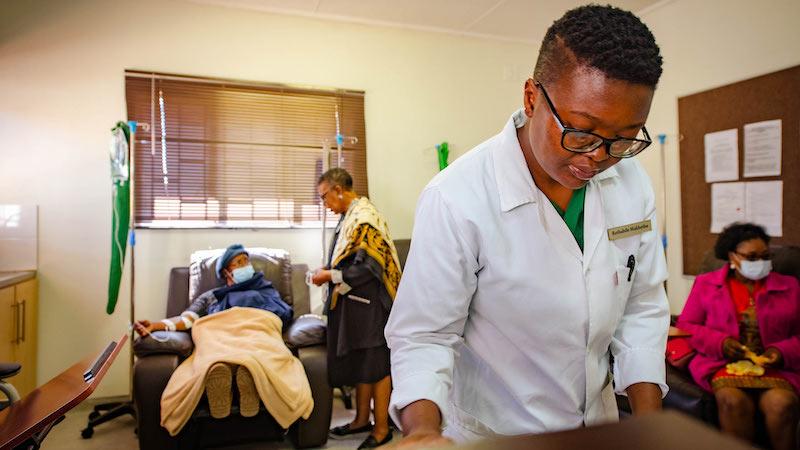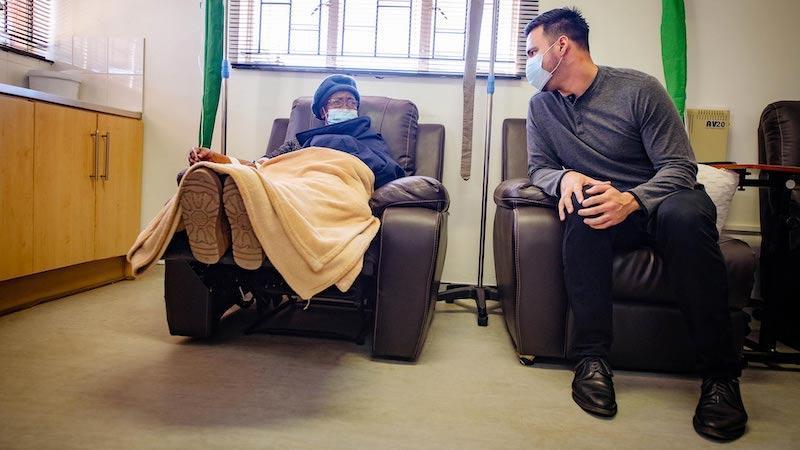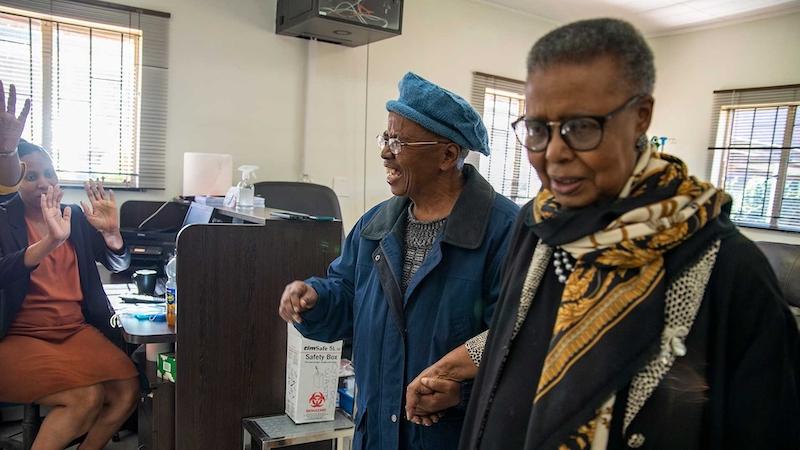Cancer Care Milestone Reached in Lesotho
Meet the first patient to receive chemotherapy in the landlocked African nation
Originally published on Bristol Myers Squibb News & Perspectives
For too many years, cancer patients in Lesotho felt life-changing cancer treatment was out of reach. No oncology clinics existed in their landlocked country ringed by steep mountains and surrounded by South Africa. Those hoping to receive treatment journeyed hours, traversing mountains to reach Bloemfontein, South Africa. Some patients crossed the ocean to India, staying for many weeks of treatment away from their loved ones.
For sicker patients, and for the many patients struggling to provide food and housing for their families, care was simply not an option. That is, until now.
In July, a Lesotho cancer patient received the first chemotherapy infusion ever given within the country. This momentous event was the result of the Bristol Myers Squibb Foundation’s collaboration with government officials and local staff, including Dr. Pearl Ntšekhe (right), director of the Senkatana Oncology Clinic in Maseru, Lesotho, and Dr. Kabelo Mputsoe (not pictured), who administered the treatment at Senkatana.
The Bristol Myers Squibb Foundation provides extensive resources and in-service training in Lesotho to support pharmacists and oncology nurses. Increasing the number of oncology-trained local healthcare providers will contribute to the long-term sustainability of the program.
A peer-to-peer support moment: As a cancer survivor, “Dr. Pearl” understands the difficulty of treatment and the importance of patient comfort.
Speaking softly, Dr. Pearl recalls, “When I had cancer, I learned firsthand that patients encounter many problems traveling to receive treatment. The journey is long and difficult, and our transportation is often unreliable.”
She emphasized, “It was important to me to work towards a better experience for patients.”
She often displays that empathy, gently patting a shoulder, tucking in a blanket, nodding her head, listening carefully to concerns, and always offering clear, thoughtful answers to questions.
The Bristol Myers Squibb Foundation launched the Senkatana Centre of Excellence Clinic over 20 years ago as a first anti-retroviral clinic to fight HIV/AIDS in Lesotho. Those early learnings helped them expand to address tuberculosis in Lesotho and now, cancer diagnosis and treatment. Historically, the lack of local oncology-trained healthcare providers and low patient awareness have led to low diagnosis rates.
Disease education and communication will go a long way to reduce the cultural stigma and fear of cancer, encourage potential patients to seek early diagnoses, increase awareness of local care, and – equally important – provide hope. Support from loved ones and hearing the stories of other patients can be helpful as well.
The Bristol Myers Squibb Foundation, in conjunction with the Rutgers Institute for Pharmaceutical Industry Fellowships, provides a 12-month Public Health Residency Program, which plays an important role in building that local care. Alejandro Nava (right) was selected for the program and is devoting six months to teaching cancer care at Senkatana Clinic. Preparing for the first chemotherapy infusion, he worked hand-in-hand with the staff and walked the patient through every step of the process. The primary goal of the residency program is to improve health outcomes and decrease health disparities in underserved, under-resourced areas.
Dr. Pearl recalled that when she told that first patient about receiving cancer care at the Senkatana Clinic, “She had been worried about having to travel far away for her treatment. She told me that she couldn’t believe she was being treated here at home. She never thought she would be able to receive treatment among people speaking her native language, Sesotho. She thought it was a dream.”
When patients arrive for their weekly appointments, sometimes their bloodwork indicates that they need hydration, medication or nutrients before they can take their next infusion. A high percentage of Lesotho’s population suffers from nutritional deficiencies, so the clinic suggests canned nutritional supplements that meet specific needs. Visits end with recommendations for proper, consistent follow-up care – critical to cancer recovery.
After three weeks, the first patient begins to see some improvement and feels at home with the cancer team. Three months after the cancer clinic opened, more than 20 patients are receiving cancer treatment and follow-up care at Senkatana.
The patient and her family are grateful she was the very first to receive chemotherapy treatment in Lesotho, a country of more than 2 million residents.
That first infusion in July was the result of years of planning and collaboration to improve access to healthcare for the people of Lesotho.
Last year, the Bristol Myers Squibb Foundation launched the first Comprehensive Cancer Care Centre of Excellence in Soweto, the fourth largest city in South Africa. The facility and its local team provide access to cancer care for some 1.8 million residents.
Learn more about the Bristol Myers Squibb Foundation, and similar work the Foundation is doing to address health disparities in Brazil.





